Ultimate uses and benefits of glycerin
Glycerin, also known as glycerol, is a natural compound derived from vegetable oils or animal fats. It’s a clear, colorless, odorless and syrupy liquid with a sweet taste.Glycerin is a humectant, a type of moisturizing agent that pulls water into the outer layer of your skin from deeper levels of your skin and the air.In skin care products, glycerin is commonly used with occlusives, another type of moisturizing agent, to trap the moisture that it draws into the skin.
According to a study, glycerin is “the most effective humectant” in comparison with numerous others, including:
 Glycerin is great for the skin because it acts as a humectant, which is a substance that allows the skin to retain moisture. It can increase skin hydration, relieve dryness, and refresh the skin’s surface. It’s also an emollient, which means it can soften skin. This is great if eczema or psoriasis leave you with rough or dry patches.
Glycerin is great for the skin because it acts as a humectant, which is a substance that allows the skin to retain moisture. It can increase skin hydration, relieve dryness, and refresh the skin’s surface. It’s also an emollient, which means it can soften skin. This is great if eczema or psoriasis leave you with rough or dry patches.
 Glycerin is best known for its ability to moisturize and protect the skin. Although it isn’t well known as a skin whitener, some people claim that glycerin contains skin whitening properties. However, there is little if any research supporting its use for this purpose. Some of these claims might be due to its exfoliating properties.
When applied topically, glycerin’s humectant properties can improve hydration in the outer layer of the skin. This leads to softer skin on the top layer, which makes exfoliation easier. Exfoliation is the removal of dead skin cells. Removing these skin cells might help brighten a dull complexion and improve the appearance of dark spots, scars, and age spots.
Glycerin is best known for its ability to moisturize and protect the skin. Although it isn’t well known as a skin whitener, some people claim that glycerin contains skin whitening properties. However, there is little if any research supporting its use for this purpose. Some of these claims might be due to its exfoliating properties.
When applied topically, glycerin’s humectant properties can improve hydration in the outer layer of the skin. This leads to softer skin on the top layer, which makes exfoliation easier. Exfoliation is the removal of dead skin cells. Removing these skin cells might help brighten a dull complexion and improve the appearance of dark spots, scars, and age spots.
 By using glycerin as a cleanser, one can keep the skin clean and free from microbial infections. Use a face wash that contains a substantial amount of glycerin. This will prevent the deposition of dirt or dead skin cells. You may also use pure glycerin to clean your face. Just pour a drop or two of glycerin on a cotton ball and gently wipe your face and leave it overnight.
By using glycerin as a cleanser, one can keep the skin clean and free from microbial infections. Use a face wash that contains a substantial amount of glycerin. This will prevent the deposition of dirt or dead skin cells. You may also use pure glycerin to clean your face. Just pour a drop or two of glycerin on a cotton ball and gently wipe your face and leave it overnight.
 Prevent formation of scales or flakes by using glycerin as a moisturizer. These will remove dead skin cells from the pores and the surface of the skin. Thus, by keeping your skin hydrated and retaining natural moisture, you can prevent acne.
Prevent formation of scales or flakes by using glycerin as a moisturizer. These will remove dead skin cells from the pores and the surface of the skin. Thus, by keeping your skin hydrated and retaining natural moisture, you can prevent acne.
 Use glycerin as a toner to prevent the formation of acne, pimples or blemishes. Take about a teaspoon of glycerin and two teaspoons of rose water and apply this mixture to your face. This way, you will be able to have a clear, clean and a flawless skin.
Use glycerin as a toner to prevent the formation of acne, pimples or blemishes. Take about a teaspoon of glycerin and two teaspoons of rose water and apply this mixture to your face. This way, you will be able to have a clear, clean and a flawless skin.
 Using glycerin can improve the skin’s moisture levels. It attracts moisture from the environment and traps it in your skin to make it appear healthy, soft and hydrated.
Using glycerin can improve the skin’s moisture levels. It attracts moisture from the environment and traps it in your skin to make it appear healthy, soft and hydrated.
 Glycerin protects the skin against irritants and external pollutants. It also helps in healing of wounds.
Glycerin protects the skin against irritants and external pollutants. It also helps in healing of wounds.
 Glycerin can slow down the aging process of your skin and keep it firm and wrinkle free for a longer period.
Glycerin can slow down the aging process of your skin and keep it firm and wrinkle free for a longer period.
 Glycerin’s moisturizing and hydrating properties help soothe dry skin. Research indicates that creams containing glycerin can treat eczema and atopic dermatitis.
Glycerin’s moisturizing and hydrating properties help soothe dry skin. Research indicates that creams containing glycerin can treat eczema and atopic dermatitis.
 According to scientific research, glycerin is absolutely safe to use on the face. It is widely used in several facial creams and cleansers. However, glycerin easily attracts and absorbs moisture, dust and pollution, which can cause irritation to some people. Thus, you should ideally dilute raw glycerin in water or rose water before applying it on your face.
According to scientific research, glycerin is absolutely safe to use on the face. It is widely used in several facial creams and cleansers. However, glycerin easily attracts and absorbs moisture, dust and pollution, which can cause irritation to some people. Thus, you should ideally dilute raw glycerin in water or rose water before applying it on your face.

 Several research studies have proved glycerin to be a safe ingredient for all skin types. However, it can cause allergic reactions, if not diluted well. Too much glycerin can lead to excess hydration in oily skin and water-loss in dry skin. So, use it with caution.
Several research studies have proved glycerin to be a safe ingredient for all skin types. However, it can cause allergic reactions, if not diluted well. Too much glycerin can lead to excess hydration in oily skin and water-loss in dry skin. So, use it with caution.
 Glycerin, or glycerol, is known to be the most effective humectant. As such, it draws in moisture to the hair and scalp. Additionally, it helps to create a barrier to prevent moisture from leaving the skin and hair follicles. It has a small molecular size and can draw in moisture into the cells of both scalp and hair. This can be especially helpful during the dry winter months when dry scalp conditions may lead to itching and flaking.Glycerin's ability to attract and maintain moisture makes it extremely beneficial to the scalp's overall health. Adequate hydration of the scalp's skin can prevent a host of issues, including dandruff and oil overproduction. Healthy hair starts at the scalp, making scalp health paramount in treating hair concerns.
Glycerin, or glycerol, is known to be the most effective humectant. As such, it draws in moisture to the hair and scalp. Additionally, it helps to create a barrier to prevent moisture from leaving the skin and hair follicles. It has a small molecular size and can draw in moisture into the cells of both scalp and hair. This can be especially helpful during the dry winter months when dry scalp conditions may lead to itching and flaking.Glycerin's ability to attract and maintain moisture makes it extremely beneficial to the scalp's overall health. Adequate hydration of the scalp's skin can prevent a host of issues, including dandruff and oil overproduction. Healthy hair starts at the scalp, making scalp health paramount in treating hair concerns.
 Glycerin draws water into the scalp from the environment, which provides needed hydration, it prevents TEWL Trans epidermal Water Loss.
Glycerin draws water into the scalp from the environment, which provides needed hydration, it prevents TEWL Trans epidermal Water Loss.
 The infusion of moisture from glycerin helps to regulate oil production in the scalp.
The infusion of moisture from glycerin helps to regulate oil production in the scalp.
 The antimicrobial properties of glycerin can help treat itchiness caused by dryness or dandruff, Friese explains.
The antimicrobial properties of glycerin can help treat itchiness caused by dryness or dandruff, Friese explains.
 Friese shares that Glycerin is a natural humectant. This means that it will draw moisture to the hair and keep it there. glycerin has the ability to attach to the hair keratin preventing moisture evaporation.
Friese shares that Glycerin is a natural humectant. This means that it will draw moisture to the hair and keep it there. glycerin has the ability to attach to the hair keratin preventing moisture evaporation.
 Glycerin reduces hair dehydration, frizz, and breakage. It can therefore also work well for some types of natural hair to maintain or enhance the curl pattern and eliminate frizz.
Glycerin reduces hair dehydration, frizz, and breakage. It can therefore also work well for some types of natural hair to maintain or enhance the curl pattern and eliminate frizz.
 It is recommended to create a glycerin spray with water that acts as a detangler or leave-in treatment and can be used after washing and conditioning hair. You should experiment to see how much is needed to achieve your regular hairstyle still.
It is recommended to create a glycerin spray with water that acts as a detangler or leave-in treatment and can be used after washing and conditioning hair. You should experiment to see how much is needed to achieve your regular hairstyle still.
 glycerin hair mask can be created that is rinsed out before conditioning (use one-to-two times a week). Make sure to apply the mask to all strands.
glycerin hair mask can be created that is rinsed out before conditioning (use one-to-two times a week). Make sure to apply the mask to all strands.
 If your conditioner does not already have glycerin in it, you can add glycerin to the bottle. Apply enough conditioner to cover all hair strands and leave on for at least 5 minutes before washing out.
If your conditioner does not already have glycerin in it, you can add glycerin to the bottle. Apply enough conditioner to cover all hair strands and leave on for at least 5 minutes before washing out.
Benefits of Glycerin for Lips
Dry and chapped lips are a common problem, especially during the harsh winter months. If left untreated, chapped lips can turn dark, may start to flake, and can even bleed. A study showed that a patient with scaly and peeling lips for seven years was successfully treated with glycerin.If you're looking for an inexpensive, safe, and simple solution to get rid of chapped lips, you can try using glycerin.
 Dry and flaky skin on the lips can be annoying. But you can get rid of it easily by applying glycerin regularly.
Dry and flaky skin on the lips can be annoying. But you can get rid of it easily by applying glycerin regularly.
 Glycerin works exceptionally well when mixed with lemon juice. Mix the two and apply it to your lips every night before going to bed. Lemon and glycerin can help treat dry and chapped lips, while also being an effective remedy for lip pigmentation.
Glycerin works exceptionally well when mixed with lemon juice. Mix the two and apply it to your lips every night before going to bed. Lemon and glycerin can help treat dry and chapped lips, while also being an effective remedy for lip pigmentation.
 Glycerin and rose water, each has its benefits. While rose water has anti-inflammatory properties, glycerin soothes the skin. Glycerin mixed with rose water and a few drops of lime juice reduces dark spots and eliminates dead cells from the lips.
Glycerin and rose water, each has its benefits. While rose water has anti-inflammatory properties, glycerin soothes the skin. Glycerin mixed with rose water and a few drops of lime juice reduces dark spots and eliminates dead cells from the lips.
 Take a few pieces of beetroot and boil them with glycerin in a double boiler. After boiling for 10-15 minutes, you can see the glycerin's color change to a light pink beetroot color. Turn off the heat and allow it to cool. Drain the liquid in a clean glass container. Dab a cotton ball and apply it to your lips for soft and smooth lips.
Take a few pieces of beetroot and boil them with glycerin in a double boiler. After boiling for 10-15 minutes, you can see the glycerin's color change to a light pink beetroot color. Turn off the heat and allow it to cool. Drain the liquid in a clean glass container. Dab a cotton ball and apply it to your lips for soft and smooth lips.
 Glycerin and sugar when combined work as a great scrub. Mix a few drops of glycerin, a drop of lemon juice, and a little sugar in a bowl. Apply the scrub on your lips and gently massage to scrub away dead skin cells and promote the growth of new skin cells.
Glycerin and sugar when combined work as a great scrub. Mix a few drops of glycerin, a drop of lemon juice, and a little sugar in a bowl. Apply the scrub on your lips and gently massage to scrub away dead skin cells and promote the growth of new skin cells.
- Alpha hydroxy acids, such as lactic acid and glycolic acid
- Hyaluronic acid
- Propylene glycol and butylene glycol
- Sorbitol
- Urea
How can glycerin benefit your skin?
 Glycerin is great for the skin because it acts as a humectant, which is a substance that allows the skin to retain moisture. It can increase skin hydration, relieve dryness, and refresh the skin’s surface. It’s also an emollient, which means it can soften skin. This is great if eczema or psoriasis leave you with rough or dry patches.
Glycerin is great for the skin because it acts as a humectant, which is a substance that allows the skin to retain moisture. It can increase skin hydration, relieve dryness, and refresh the skin’s surface. It’s also an emollient, which means it can soften skin. This is great if eczema or psoriasis leave you with rough or dry patches.
Can glycerin whiten skin?
 Glycerin is best known for its ability to moisturize and protect the skin. Although it isn’t well known as a skin whitener, some people claim that glycerin contains skin whitening properties. However, there is little if any research supporting its use for this purpose. Some of these claims might be due to its exfoliating properties.
When applied topically, glycerin’s humectant properties can improve hydration in the outer layer of the skin. This leads to softer skin on the top layer, which makes exfoliation easier. Exfoliation is the removal of dead skin cells. Removing these skin cells might help brighten a dull complexion and improve the appearance of dark spots, scars, and age spots.
Glycerin is best known for its ability to moisturize and protect the skin. Although it isn’t well known as a skin whitener, some people claim that glycerin contains skin whitening properties. However, there is little if any research supporting its use for this purpose. Some of these claims might be due to its exfoliating properties.
When applied topically, glycerin’s humectant properties can improve hydration in the outer layer of the skin. This leads to softer skin on the top layer, which makes exfoliation easier. Exfoliation is the removal of dead skin cells. Removing these skin cells might help brighten a dull complexion and improve the appearance of dark spots, scars, and age spots.
How should you use glycerin?
While using glycerin on its own can moisturize and exfoliate your skin, some proponents claim that combining glycerin with other ingredients can also whiten the skin. However, there is no scientific evidence to back up these claims.Using glycerin in combination with other products, such as lemon and rose water, may help revive dull, dry skin or soften your skin for easier exfoliation. These ingredients work well together because glycerin provides hydration and moisture, while rose water acts as an astringent. It not only cleanses but also tightens your pores and tones your skin.Make your own serum
Try making your own serum:- Combine 5 drops of pure glycerin with the juice of 1 lemon and 20 milliliters (mL) of rose water.
- Pour the mixture into a small bottle or a spray bottle.
- Apply the liquid to your face daily, using your finger or a cotton swab, or apply as a mist for a healthy glow after applying makeup.
- Store the serum in the refrigerator.
Do a patch test before using
Always do a patch test before using cosmetics containing glycerin for the first time. Apply a small amount to a small area of skin, wait 24 hours, then check for a reaction. If you’re sensitive to glycerin, signs of a reaction include:- Skin redness
- Swelling
- Itching
How to use glycerin to cure acne
As a cleanser
 By using glycerin as a cleanser, one can keep the skin clean and free from microbial infections. Use a face wash that contains a substantial amount of glycerin. This will prevent the deposition of dirt or dead skin cells. You may also use pure glycerin to clean your face. Just pour a drop or two of glycerin on a cotton ball and gently wipe your face and leave it overnight.
By using glycerin as a cleanser, one can keep the skin clean and free from microbial infections. Use a face wash that contains a substantial amount of glycerin. This will prevent the deposition of dirt or dead skin cells. You may also use pure glycerin to clean your face. Just pour a drop or two of glycerin on a cotton ball and gently wipe your face and leave it overnight.
Moisturizers
 Prevent formation of scales or flakes by using glycerin as a moisturizer. These will remove dead skin cells from the pores and the surface of the skin. Thus, by keeping your skin hydrated and retaining natural moisture, you can prevent acne.
Prevent formation of scales or flakes by using glycerin as a moisturizer. These will remove dead skin cells from the pores and the surface of the skin. Thus, by keeping your skin hydrated and retaining natural moisture, you can prevent acne.
Toner
 Use glycerin as a toner to prevent the formation of acne, pimples or blemishes. Take about a teaspoon of glycerin and two teaspoons of rose water and apply this mixture to your face. This way, you will be able to have a clear, clean and a flawless skin.
Use glycerin as a toner to prevent the formation of acne, pimples or blemishes. Take about a teaspoon of glycerin and two teaspoons of rose water and apply this mixture to your face. This way, you will be able to have a clear, clean and a flawless skin.
Benefits Of Using Glycerin on Face
1.Moisturizes Skin
 Using glycerin can improve the skin’s moisture levels. It attracts moisture from the environment and traps it in your skin to make it appear healthy, soft and hydrated.
Using glycerin can improve the skin’s moisture levels. It attracts moisture from the environment and traps it in your skin to make it appear healthy, soft and hydrated.
2.Protects and Heals
 Glycerin protects the skin against irritants and external pollutants. It also helps in healing of wounds.
Glycerin protects the skin against irritants and external pollutants. It also helps in healing of wounds.
3.Anti-Aging Properties
 Glycerin can slow down the aging process of your skin and keep it firm and wrinkle free for a longer period.
Glycerin can slow down the aging process of your skin and keep it firm and wrinkle free for a longer period.
4.Can Treat Eczema and Atopic Dermatitis
 Glycerin’s moisturizing and hydrating properties help soothe dry skin. Research indicates that creams containing glycerin can treat eczema and atopic dermatitis.
Glycerin’s moisturizing and hydrating properties help soothe dry skin. Research indicates that creams containing glycerin can treat eczema and atopic dermatitis.
5.Repairs Skin Barrier
Glycerin, when used with hyaluronic acid, functions as a skin barrier repairing and protecting agent.Can You Apply Glycerin Directly on Your Face?
 According to scientific research, glycerin is absolutely safe to use on the face. It is widely used in several facial creams and cleansers. However, glycerin easily attracts and absorbs moisture, dust and pollution, which can cause irritation to some people. Thus, you should ideally dilute raw glycerin in water or rose water before applying it on your face.
According to scientific research, glycerin is absolutely safe to use on the face. It is widely used in several facial creams and cleansers. However, glycerin easily attracts and absorbs moisture, dust and pollution, which can cause irritation to some people. Thus, you should ideally dilute raw glycerin in water or rose water before applying it on your face.
How To Apply Glycerin to Your Face?
As a face wash
Glycerin removes dirt and pollution accumulated on your skin. It works as an excellent makeup remover too.- Rinse your face with water.
- Take a little bit of glycerin on a cotton ball and dab it all over your face.
- Avoid contact with eyes and mouth.
- Allow it to absorb into the skin. Wash it off after a few minutes.
As a toner
Glycerin tightens your pores. Using it as a toner can work wonders for your skin. However, make sure you don’t use too much of it.- Add a few drops of glycerin to half a cup of rose water.
- Gently dab it onto your skin before applying your moisturizer.
As a moisturizer
Glycerin works as an excellent natural moisturizer for your skin, when diluted with water and other ingredients.- Wash your face thoroughly with a mild cleanser.
- Apply your glycerin-based moisturizer gently on all areas of your face.
- Ensure that you don’t let it enter your eyes.
- You can also make a DIY moisturizer by mixing glycerin with almond oil and 2 drops of any essential oil.
As a lip balm
Glycerin is gentler and more moisturizing than any chemical-based lip balms.- Mix glycerin with shea butter, cocoa butter or coconut oil.
- Apply it on your lipsafter cleansing it.
- Leave it overnight.
Precautions And Tips of Using Glycerin on Your Skin

- Although glycerin is gentle on the skin, it is advised to conduct a patch test before applying it to your face. Dilute glycerin in rose water and apply the mixture to the back of your hand. Wait for 24 hours. If your skin doesn’t experience any allergic reactions, it’s safe to be applied onto your face.
- If you have sensitive skin, make sure to not use glycerin directly on your skin. Always dilute it.
- Glycerin can cause sun sensitivity. It is advised for you to use glycerin at night before sleeping. If you do use it during the day, apply sunscreen before you step out.
Can You Leave Glycerin Overnight on Your Face?
Glycerin is a humectant. It attracts moisture from the environment and the inner layers of your skin. Using it overnight for months together can also dry up the inner layers of your skin and eventually result in skin aging. Leaving it on for 15-20 minutes and washing it off before going to bed is the best option. However, if you are leaving it on overnight, make sure it is diluted properly.Does Glycerin Have Any Side Effects on Skin?
 Several research studies have proved glycerin to be a safe ingredient for all skin types. However, it can cause allergic reactions, if not diluted well. Too much glycerin can lead to excess hydration in oily skin and water-loss in dry skin. So, use it with caution.
Several research studies have proved glycerin to be a safe ingredient for all skin types. However, it can cause allergic reactions, if not diluted well. Too much glycerin can lead to excess hydration in oily skin and water-loss in dry skin. So, use it with caution.
Benefits of Glycerin for Hair
 Glycerin, or glycerol, is known to be the most effective humectant. As such, it draws in moisture to the hair and scalp. Additionally, it helps to create a barrier to prevent moisture from leaving the skin and hair follicles. It has a small molecular size and can draw in moisture into the cells of both scalp and hair. This can be especially helpful during the dry winter months when dry scalp conditions may lead to itching and flaking.Glycerin's ability to attract and maintain moisture makes it extremely beneficial to the scalp's overall health. Adequate hydration of the scalp's skin can prevent a host of issues, including dandruff and oil overproduction. Healthy hair starts at the scalp, making scalp health paramount in treating hair concerns.
Glycerin, or glycerol, is known to be the most effective humectant. As such, it draws in moisture to the hair and scalp. Additionally, it helps to create a barrier to prevent moisture from leaving the skin and hair follicles. It has a small molecular size and can draw in moisture into the cells of both scalp and hair. This can be especially helpful during the dry winter months when dry scalp conditions may lead to itching and flaking.Glycerin's ability to attract and maintain moisture makes it extremely beneficial to the scalp's overall health. Adequate hydration of the scalp's skin can prevent a host of issues, including dandruff and oil overproduction. Healthy hair starts at the scalp, making scalp health paramount in treating hair concerns.
Boosts Scalp Hydration:
 Glycerin draws water into the scalp from the environment, which provides needed hydration, it prevents TEWL Trans epidermal Water Loss.
Glycerin draws water into the scalp from the environment, which provides needed hydration, it prevents TEWL Trans epidermal Water Loss.
Regulates Sebum Production:
 The infusion of moisture from glycerin helps to regulate oil production in the scalp.
The infusion of moisture from glycerin helps to regulate oil production in the scalp.
Antimicrobial Properties:
 The antimicrobial properties of glycerin can help treat itchiness caused by dryness or dandruff, Friese explains.
The antimicrobial properties of glycerin can help treat itchiness caused by dryness or dandruff, Friese explains.
Moisturizer for Dry Hair:
 Friese shares that Glycerin is a natural humectant. This means that it will draw moisture to the hair and keep it there. glycerin has the ability to attach to the hair keratin preventing moisture evaporation.
Friese shares that Glycerin is a natural humectant. This means that it will draw moisture to the hair and keep it there. glycerin has the ability to attach to the hair keratin preventing moisture evaporation.
Improves Overall Scalp Health:
Friese details the benefits glycerin has for overall scalp health, stating that because Glycerin returns moisture to dry hair and improves the scalp layer, also by moisturizing, it can help create a healthy scalp environment.Strengthens Hair:
Hydration is an essential defense against hair breakage. Optimal hydration and moisturization can maintain strength, health and improve the appearance of the hair.Targets Frizz:
 Glycerin reduces hair dehydration, frizz, and breakage. It can therefore also work well for some types of natural hair to maintain or enhance the curl pattern and eliminate frizz.
Glycerin reduces hair dehydration, frizz, and breakage. It can therefore also work well for some types of natural hair to maintain or enhance the curl pattern and eliminate frizz.
Can Aid in Hair Growth:
By contributing to scalp health, glycerin can contribute to new hair growth. It should be considered a great fertilizer helping plants to grow. Glycerin helps create the environment for better hair growth.Hair Type Considerations
Our experts agree that glycerin is safe for all hair types but can be especially beneficial to those with thick, coarse, dry, or dehydrated hair. It illustrates the effect glycerin can have on course or curly hair; there is a range of porosity for hair that dictates the efficiency of humectants and oils passing through the cuticle. The more tightly bound the hair, the less porous the hair. With high porosity and a more open cuticle, the hair has better absorption of glycerin leading to improved hydration. Friese does caution use of glycerin on freshly colored hair, as it may strip color. It is recommended waiting one-to-two washes before using glycerin in colored hair. Glycerin reactions are uncommon, but a patch test should be conducted before using it all over the hair and scalp.How to Use Glycerin for Hair
Glycerin is already found in many commonly used beauty products, making it easy to incorporate into your routine. Those looking to take full advantage of its effects should source glycerin in its pure form. The importance of researching the purity, derivation or source, and strength when purchasing glycerin. She cautions that it can be highly occlusive on its own and needs to be diluted.-
Make a Glycerin Spray:
 It is recommended to create a glycerin spray with water that acts as a detangler or leave-in treatment and can be used after washing and conditioning hair. You should experiment to see how much is needed to achieve your regular hairstyle still.
It is recommended to create a glycerin spray with water that acts as a detangler or leave-in treatment and can be used after washing and conditioning hair. You should experiment to see how much is needed to achieve your regular hairstyle still.
-
Create a Mask:
 glycerin hair mask can be created that is rinsed out before conditioning (use one-to-two times a week). Make sure to apply the mask to all strands.
glycerin hair mask can be created that is rinsed out before conditioning (use one-to-two times a week). Make sure to apply the mask to all strands.
-
Add Glycerin to Conditioner:
 If your conditioner does not already have glycerin in it, you can add glycerin to the bottle. Apply enough conditioner to cover all hair strands and leave on for at least 5 minutes before washing out.
If your conditioner does not already have glycerin in it, you can add glycerin to the bottle. Apply enough conditioner to cover all hair strands and leave on for at least 5 minutes before washing out.
-
Purchase Glycerin-Rich Products:
-
Apply as a Pre-Wash Treatment:
-
Use as a Deep Conditioning Treatment:
Benefits of Glycerin for Lips
Dry and chapped lips are a common problem, especially during the harsh winter months. If left untreated, chapped lips can turn dark, may start to flake, and can even bleed. A study showed that a patient with scaly and peeling lips for seven years was successfully treated with glycerin.If you're looking for an inexpensive, safe, and simple solution to get rid of chapped lips, you can try using glycerin.
How Do You Use Glycerin on Your Lips?
 Dry and flaky skin on the lips can be annoying. But you can get rid of it easily by applying glycerin regularly.
Dry and flaky skin on the lips can be annoying. But you can get rid of it easily by applying glycerin regularly.
- Take a cotton swab and some pure glycerin
- Dab the swab in the glycerin
- Apply gently on your lips before bedtime
- Repeat this process every night before going to bed
What To Mix with Glycerin for Lip Care?
-
Glycerin and Lemon for Lips
 Glycerin works exceptionally well when mixed with lemon juice. Mix the two and apply it to your lips every night before going to bed. Lemon and glycerin can help treat dry and chapped lips, while also being an effective remedy for lip pigmentation.
Glycerin works exceptionally well when mixed with lemon juice. Mix the two and apply it to your lips every night before going to bed. Lemon and glycerin can help treat dry and chapped lips, while also being an effective remedy for lip pigmentation.
-
Glycerin and Rose Water for Lips
 Glycerin and rose water, each has its benefits. While rose water has anti-inflammatory properties, glycerin soothes the skin. Glycerin mixed with rose water and a few drops of lime juice reduces dark spots and eliminates dead cells from the lips.
Glycerin and rose water, each has its benefits. While rose water has anti-inflammatory properties, glycerin soothes the skin. Glycerin mixed with rose water and a few drops of lime juice reduces dark spots and eliminates dead cells from the lips.
-
Glycerin and Beetroot for Lips
 Take a few pieces of beetroot and boil them with glycerin in a double boiler. After boiling for 10-15 minutes, you can see the glycerin's color change to a light pink beetroot color. Turn off the heat and allow it to cool. Drain the liquid in a clean glass container. Dab a cotton ball and apply it to your lips for soft and smooth lips.
Take a few pieces of beetroot and boil them with glycerin in a double boiler. After boiling for 10-15 minutes, you can see the glycerin's color change to a light pink beetroot color. Turn off the heat and allow it to cool. Drain the liquid in a clean glass container. Dab a cotton ball and apply it to your lips for soft and smooth lips.
-
Glycerin and Sugar for Lips
 Glycerin and sugar when combined work as a great scrub. Mix a few drops of glycerin, a drop of lemon juice, and a little sugar in a bowl. Apply the scrub on your lips and gently massage to scrub away dead skin cells and promote the growth of new skin cells.
Glycerin and sugar when combined work as a great scrub. Mix a few drops of glycerin, a drop of lemon juice, and a little sugar in a bowl. Apply the scrub on your lips and gently massage to scrub away dead skin cells and promote the growth of new skin cells.
-
Glycerin and Alum for Lips
-
Glycerin and Castor Oil for Lips
Benefits Of Using Glycerin on Lips
-
Softens Lips
-
All-Day Moisturizer
-
Lightens Lips
-
Treats Flaky Lips
-
Soothes Irritation
-
Promotes Healthy Lips
Safety Tips
Glycerin is generally a harmless, non-toxic compound and is safe to apply on the lips. However, if you are allergic to glycerin, you should avoid using it. If your lips swell up due to an allergic reaction to glycerin, seek your doctor's advice immediately.
Tags:
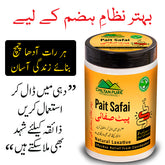

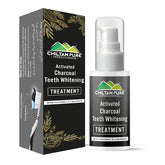

![Red Onion Oil 🧅 Reduces Hair Fall & Accelerates Hair Regrowth [پیاز کا تیل].. Trending.... 🔥 - ChiltanPure](http://chiltanpure.com/cdn/shop/products/red-onion-oil-reduces-hair-fall-amp-accelerates-hair-regrowth-piaz-ka-til-trending-394813_165x.jpg?v=1707464619)
![Red Onion Oil 🧅 Reduces Hair Fall & Accelerates Hair Regrowth [پیاز کا تیل].. Trending.... 🔥 - ChiltanPure](http://chiltanpure.com/cdn/shop/products/red-onion-oil-reduces-hair-fall-amp-accelerates-hair-regrowth-piaz-ka-til-trending-329640_165x.jpg?v=1708127491)
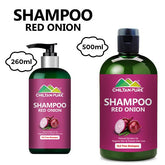

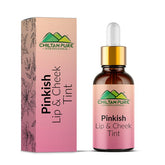

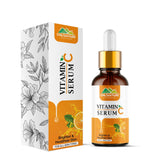

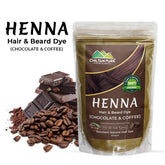

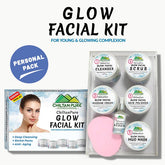

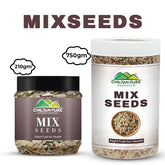

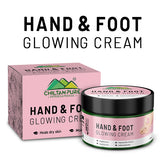


Leave a comment
Please note, comments need to be approved before they are published.